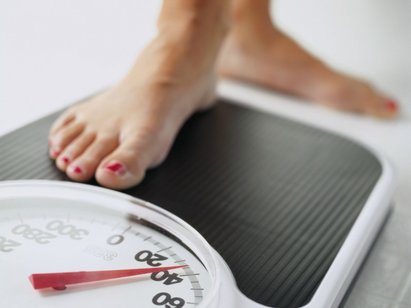Determining what your ideal weight should be is crucial to weight loss plans and diets – exercising or dieting without aim is fruitless, and can make a person feel depressed and hopeless, because there doesn’t seem to be any end in sight. The best way to go about it is to calculate your ideal body weight – this will help you determine how many pounds you need to lose, and give you a clear goal to aspire to.
The ideal weight for women varies according to height, and it is essential to determine your body fat percentage – even if your weight is ideal, you could still be unhealthy if your body contains more fat as opposed to lean muscle mass.
Your body max index, or BMI, indicates whether you are overweight or not, using your height and weight to reach an approximate guess. To calculate your BMI, divide your weight (in pounds) by the square of your height (in inches), and multiply the number you get by 703. If you are using the metric system, you can divide your weight (in kilograms) by the square of your height (in meters) – the result should be some sort of a two digit number.
Once you have your BMI, you need to determine whether it is right for your age and height or not. On average, a BMI under 18.5 is considered unhealthy, a BMI between 18.5 and 24.9 is healthy, and anything between 25 and 29.9 is considered overweight. BMIs over 30 are classified as obese, and anything above 40 would be considered dangerously obese. BMIs vary according to gender, as women have a higher body fat percentage compared to men.
Using your BMI, you can go on to determine your ideal weight. Contrary to popular belief, there is no fixed number for ideal weight – rather, there is a range, and if you happen to fall between that range, you can consider your weight ideal. For example, your minimum ideal weight would be the square of your height in inches multiplied by 18.5 and then divided by 703, while your maximum ideal weight would be the square of your height in inches multiplied by 24.9 and then divided by 703. BMI scales are generally the same for all adult females – however, they need to be adjusted for children and teens.
To determine whether your weight is healthy and ideal or not, it is best to directly measure body fat percentage, and the BMI is an accurate method for doing so. The ideal body fat percentage range for women is around 18 to 30 percent. There are a variety of ways to measure body fat percentage, and you can choose the one you are able to manage more easily – measuring by using callipers, hydrostatic weighing, or Bio-electrical Impedance Analysis.





No Comment